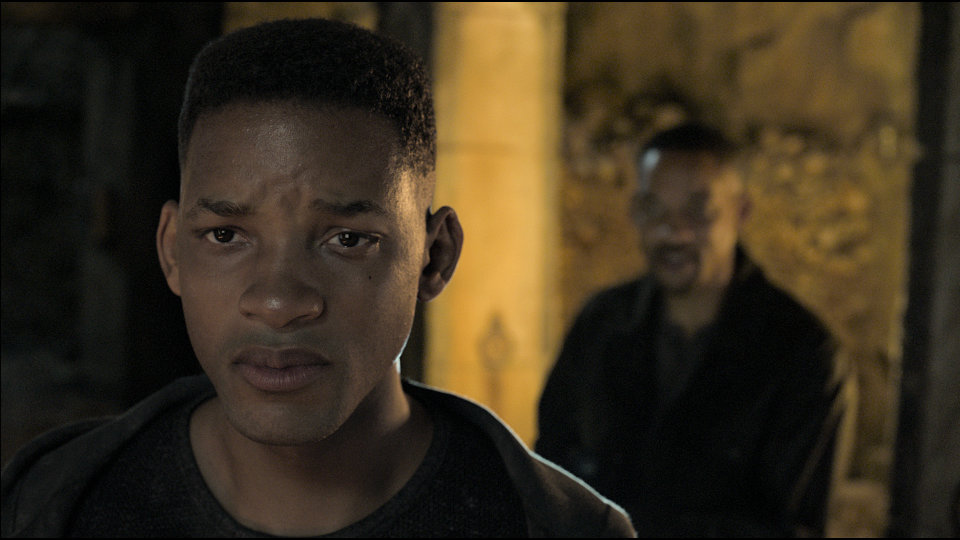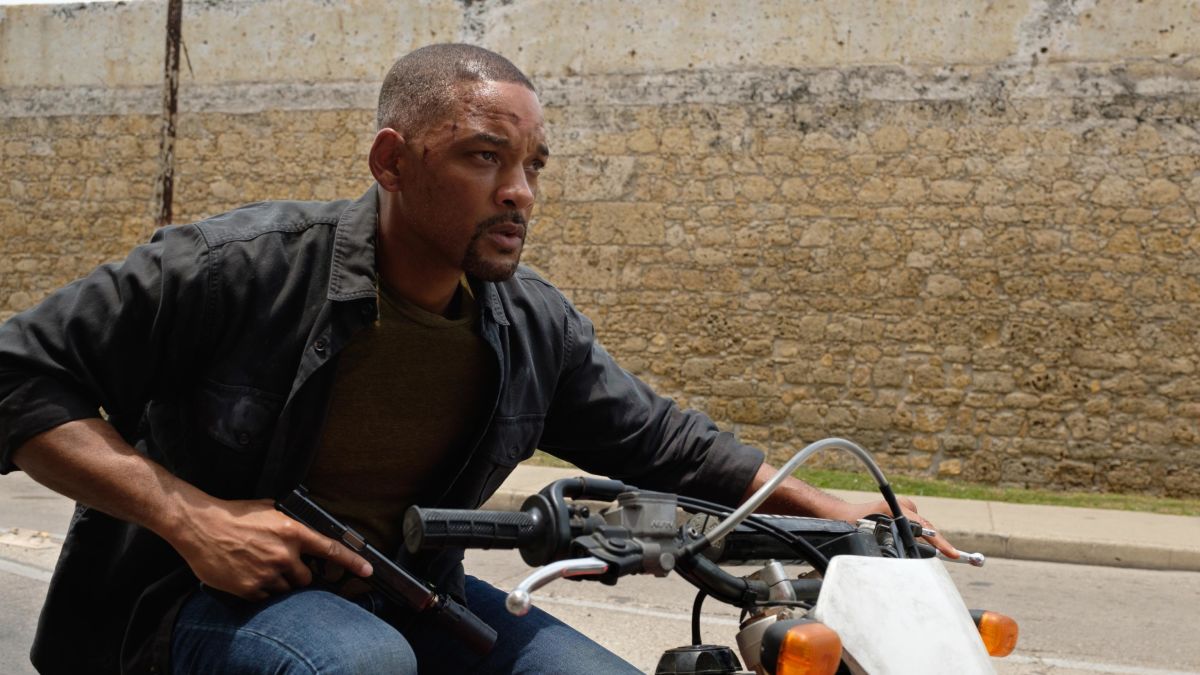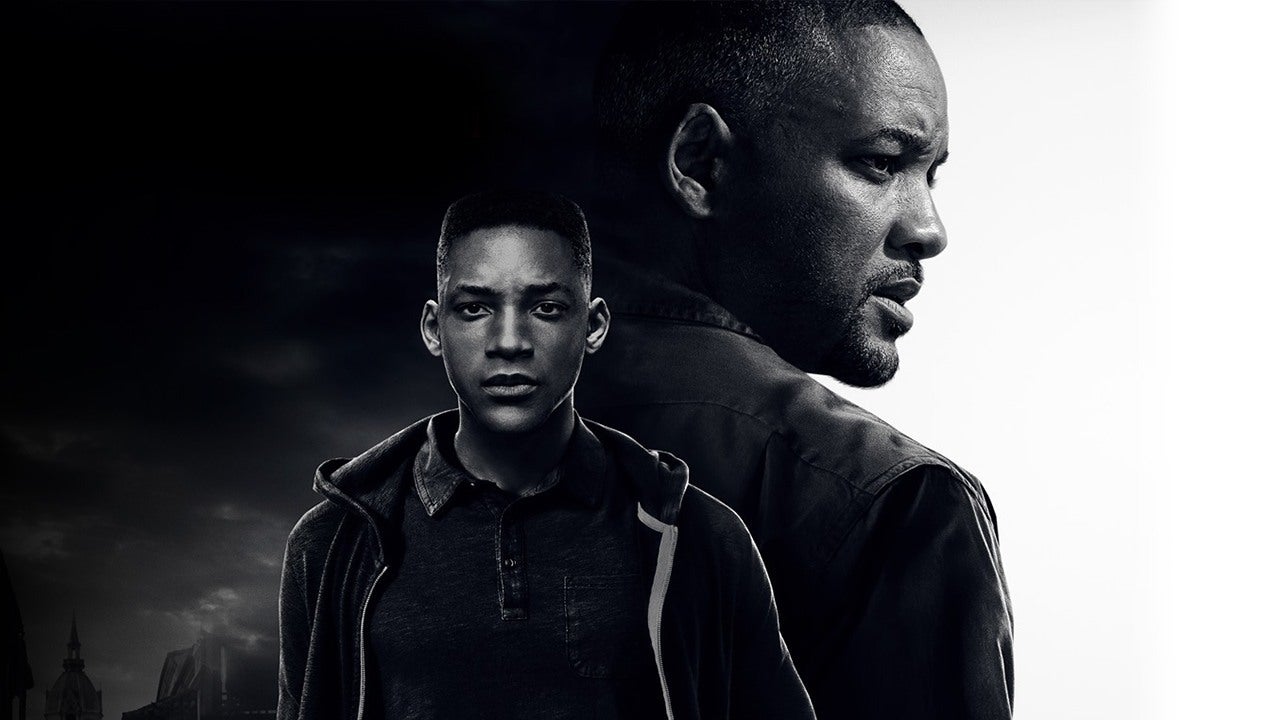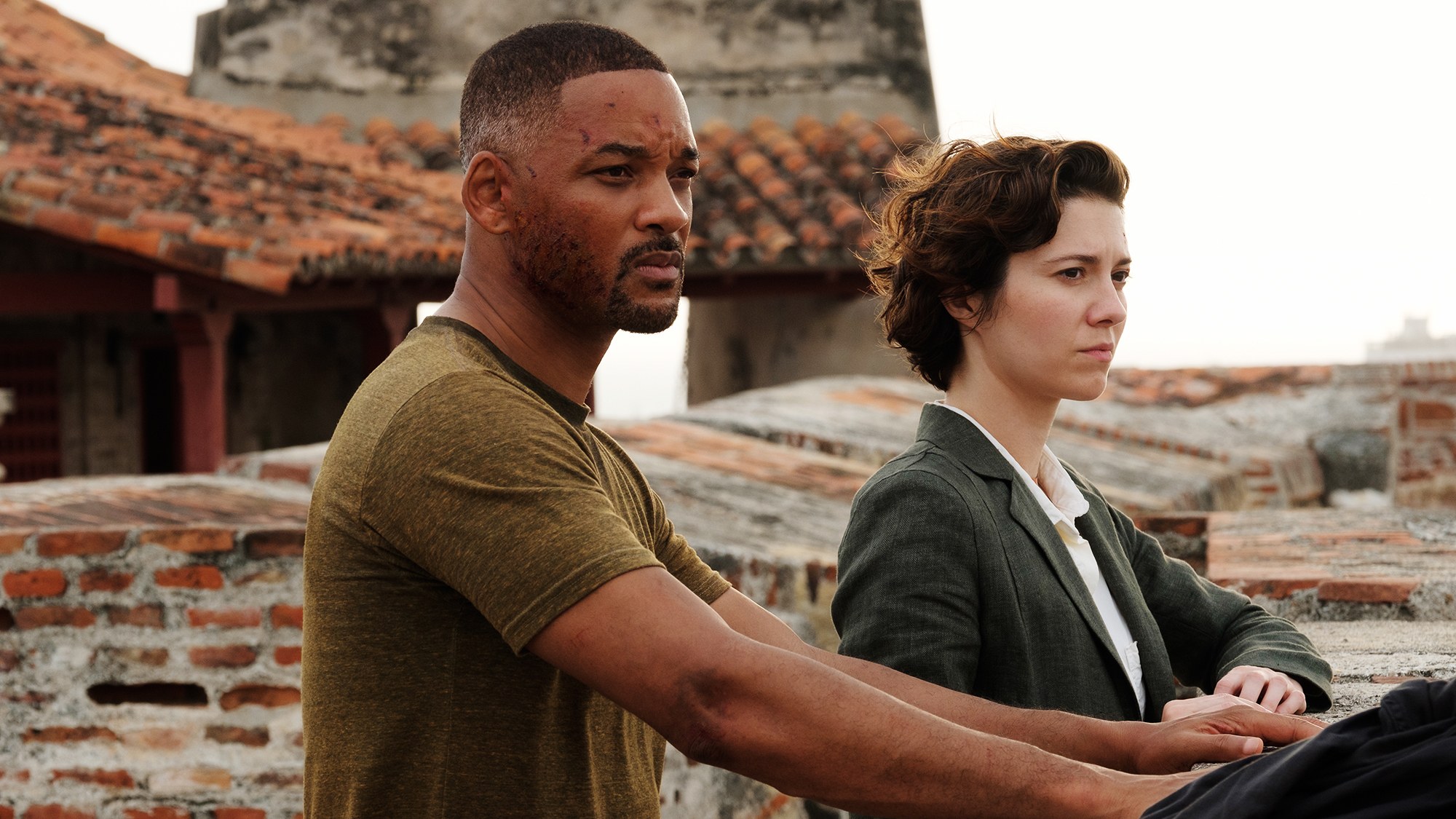It is a widely established mandate by now that a film, great or otherwise, is an inconspicuous coming together of all the elements consisting of the cinematic medium itself. That involves everything from the first time that an alphabet is typed on paper to serve as the script, to the final shot being rolled, to the last piece being put together in editing, to the film finally being shipped off to theatres. As long as nothing of them sticks out like a sore thumb, the audience is mostly in agreement that what they are seeing is indeed a good film. Maybe not great or a tour de force, but in the most simplistic terms, a good film.
However, this is not a film appreciation class and the film that we are here to dissect today very essentially raises the question: individual parts or the sum of its parts? And unfortunately so, that is exactly what ‘Gemini Man’ turns out to be: a collection of some great action scenes, technically well done but still reeling from a serious “been there done that” scenario, intermittently separated by scenes of jargon that set those action scenes up. All of this is sadly bogged down by a terribly dated script that even in its most lacklustre bits, plays it entirely by the books. It comes as no surprise then that the film is virtually devoid of one whatsoever, and moves at a completely predictable pace, including its ending that we are going to discuss. Read on.
Plot Summary
The film centres around Henry Brogan, an elite assassin and the best in business, with the film wasting no time in establishing that, virtually opening with a sequence of him sniping on a man and shooting him from nearly two kilometres away, while the man is in a speeding bullet train, moving at 348 km/h. He later cites that he shot the man, a supposed bio-terrorist, in the neck when he wanted to shoot him in the head as one of the many reason why he was disillusioned with his current job, thus wanting to retire. He meets rental boat manager Danny and sails to meet an old aide, Jack Willis, who reveals that the man Henry killed was innocent, and his agency may have been forging files on his victims to get him to do their dirty work.
While he is rattled by the revelation, he demands to meet with Jack’s informant Yuri, and leaves. Realising that Danny too was a fellow agent, he befriends her and opens up to her regarding his retirement. Meanwhile, Henry’s agency, realising that he was now aware of their deception decides to exterminate him, while Clay Varris, head of GEMINI, a top secret black ops unit head is denied the permission to go after him with his “special weapon”.
What’s the GEMINI Program?

The same is also confirmed when Henry is able to meet up with Yuri, who tells him about the cloning program and that the man he killed aboard the train was a part of the project, having discovered the way to create “perfect” clones who couldn’t feel pain, emotions, or had a conscience, revealing Varris’ villainous plans to “play god”.
Henry then tries to liaise with the head of his agency to have Danny picked up by Junior, in an attempt to have a conversation with him to reveal the nature of Varris’ plan to him. He does so, after one upping him on one of his traps, trying to persuade him by revealing secret traits that could only possibly known on the person. A heartbroken Junior confronts Varris at GEMINI, who reveals the cloning to be true, but reinforces that he had not seen him any less than a son and had raised him as such, and not as the experiment that he was supposed to be.
The Ending, Explained

Convinced in the quite clearly the opposite, Junior locates Henry and poisons him with bee venom to check whether he was telling the truth since they were both allergic to bees. With that confirmed, the two ally to bring down Varris and the GEMINI program. However, Clay, now aware of this, ambushes them, killing Baron, while Danny and Henry attempt to fight back the black ops unit he brought with him. Junior faces off against Varris and knocks him unconscious.
After taking down the squad together, the trio now face a third clone brought in by Varris, revealed to be the version of Henry who felt no pain or emotions. While initially almost superhuman and seemingly superhuman, he too is quickly brought down by the trio. Varris, now defeated, attempts to justify why he did what he did with the GEMINI program. However, just as Junior is about to kill him, Henry persuades him not to, urging him to give up the life that he was pursuing and look to better things, knocking Varris out himself.
A few months later, the head of the agency ensures Henry that the GEMINI program was put away for good, and all their labs shut down. With Henry officially retired now, he meets up with Junior later, giving him his official identity, while Junior reveals that he had taken up a new identity under the name Jackson Brogan. The film ends on an optimistic note with the trio walking away planning Jackson’s future.
Final Word

Turns out ‘Game of Thrones’ is not the only thing that David Benioff touched in the writing department that turned out completely drab this year. I will confess that the trailers had me somewhat interested, and despite the completely abysmal initial reviews, I kept an open mind, owing to my faith in two-time Academy Award winner, Ang Lee. However, even the veteran here seems to be more interested in exploring the technology behind the medium, pushing it to its limits, citing it as the very future of the cinematic medium. I can only imagine that the people who got to witness it as intended would have had a better experience than those that didn’t, but only slightly better, and that is the film’s folly.
If you, like me, are among the 90% of the populace that would be catching it in its conventional 2D, 24 FPS format, it is going to come completely undone. Ergo, the opening argument of this write-up. The film does have some interesting ideas about cloning, including when Will Smith’s Henry claims that of all the people they could have cloned, including Nelson Mandela, they chose him, an assassin, and Clive Owen’s Clay Varris acting on a morally ambiguous compass by tampering with DNA to create soldiers without families, but alas, like most of the good things in the film, they too are extremely short-lived.
That Lee wanted the film to be seen in a specific format (120 FPS, 4K, 3D), and even if apparently the film has unreal visual depth and sharpness in that medium, there are currently zero theatres capable of playing it like that. While that may open up a pandora’s box of arguments in itself, that quite simply is the least of the film’s problems. As with Ang Lee’s last film, ‘Billy Lynn’s Long Halftime Walk’, it all looks great, sounds great, and is packaged as a neat product, but an astounding visual feat can only hold your attention for so long in the absence of a crisp narrative. The film has a dated feel, in how things proceed, in how the scenes transition, its dialogues especially, and even its ending, formulaic from the word go. In closing, ‘Gemini Man’ had been stuck in development hell for at least 20 years since 1997. My untethered take is that it should have allowed to stay there. Two Will Smiths for the price of one may not necessarily be a good thing after all.



You must be logged in to post a comment.